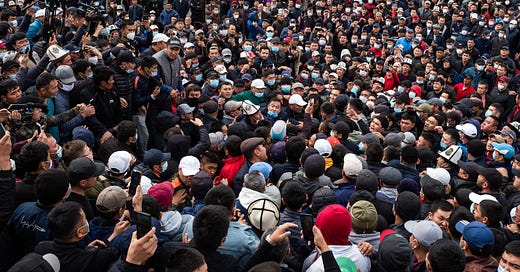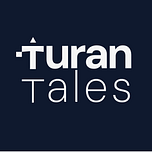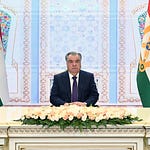Hi all,
I've recently received a mail from Reporters Without Borders (RSF), an organisation that I deeply respect. It was a large world map presenting RSF's newest Press Freedom Index. Sadly, the whole of Central Asia is marked in deep red, the colour category which signifies a place where press freedom is not upheld and where practising journalism is particularly challenging.
This includes authoritarian regimes where working as a journalist involves a high risk of violence, imprisonment and censorship. This is the most serious category in the RSF index. Most Central Asian countries either remained on the same place as last year or rose up by one position. Not because the situation particularly improved, but because it got worse in other places around the world.
Kyrgyzstan - 144 (out of 180)
Kazakhstan - 141
Uzbekistan - 148
Tajikistan - 153
Turkmenistan - 174
We know that Uzbekistan, Tajikistan and Turkmenistan are not the type of countries where freedom of press is encouraged or appreciated. So this is no news. But there is one development covered by the index that is particularly worrying: Kyrgyzstan fell by 24 places. From the 120th place last year to 144th. (It is also worth to add that in 2022, it was ranked as 72nd.)
In demonstration of this rapid fall, towards the end of May, Kyrgyz authorities arrested eight current and former employees of Kloop, a popular local media platform known for its investigations. Due to pressure and threats, over the past one and a half years, the majority of Kloop’s team have been operating from abroad.
Kloop's video operator Alexander Alexandrov and former contributor Joomart Duulatov will remain in pretrial detention until the 21st of July pending further investigation. Several human rights organisations have signed a letter requesting the government to free the journalists, so far to no avail.
But this is not the first time that Kyrgyzstan has gone after its journalists. In January 2024, law enforcement detained 11 current or former reporters of Temirov LIVE YouTube channel and charged them with inciting civil disobedience and mass unrest. Bolot Temirov, the founder of the media outlet, has lived in exile since November 2022, after the authorities stripped him of his Kyrgyzstan citizenship and expelled him from the country.
Two of the detained journalists received prison sentences of five (Azamat Ishenbekov) and six years (Makhabat Tajibek kyzy). It's almost surreal, as Kyrgyzstan for many years enjoyed the label of the “island of democracy” in Central Asia.
In this week’s episode, I'm going to talk to a person who knows the Kyrgyz system inside out: Rinat Tuhvatshin, Kloop’s co-founder and its current Chief Technology Officer, currently based in Warsaw, Poland.
I have asked him about the recent arrests of Kloop’s collaborators, the founding of Kloop and how the situation in Kyrgyzstan has been changing over the years.
Hope you will enjoy this one.
Have a great rest of the week!
— Agnieszka













Share this post